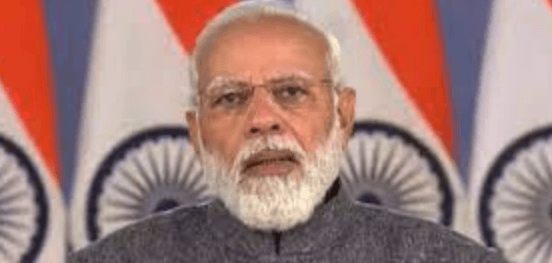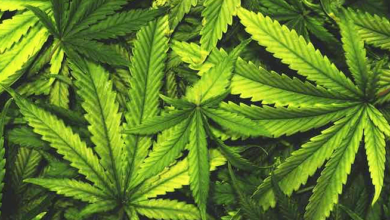rajkotupdates.news: pm modi india happy to join single use plastic

India is making a bold move against single-use plastic, and Prime Minister Narendra Modi could not be happier. In an effort to preserve the environment, reduce waste and promote sustainable living, the Indian government has taken significant steps towards eliminating disposable plastics. This revolutionary decision has been met with praise from all over the world as India takes on this critical issue head-on. Let’s take a closer look at what led to this historic moment, why it matters so much and how we can all do our part to help combat single-use plastic waste.
What is rajkotupdates.news: pm modi india happy to join single use plastic?
rajkotupdates.news: pm modi india happy to join single use plastic refers to any form of plastic packaging that is intended for one-time use before being discarded. This includes items such as straws, grocery bags, food packaging, and water bottles. These plastics are designed to be cheap and convenient but they come at a high cost to our environment.
The production and disposal of single-use plastic have significant environmental impacts. Plastic waste can take hundreds of years to decompose in landfills or oceans leading to pollution on land and sea. Additionally, the production process contributes significantly to greenhouse gas emissions which exacerbate climate change.
In recent years, there has been a growing concern about the impact of single-use plastics on the environment with governments around the world taking steps towards eliminating their use. The issue also gained prominence due to awareness campaigns by NGOs and activists across different countries.
Reducing our reliance on single-use plastic will require collective action from individuals, businesses, communities and governments worldwide. We must adopt more sustainable alternatives like reusable containers or cloth bags instead of disposable ones whenever possible.
It’s important we recognize that reducing our consumption habits when it comes down to single-use plastics will help us save millions in spending costs while ensuring that future generations inherit a cleaner planet than what we leave today!
The impact of single-use plastic on the environment
Single-use plastic has been a major contributor to the worsening state of our planet’s environment. These items, often used only once before being discarded, have become ubiquitous in our daily lives. Unfortunately, they also take hundreds of years to decompose, and many end up in landfills or even worse – our oceans.
When these plastics break down into smaller pieces called microplastics, it can be deadly for marine wildlife who mistake them for food. This can lead to digestive issues and even death. Additionally, as single-use plastics continue to accumulate in the ocean over time, entire ecosystems are disrupted.
Moreover, the production process of these plastics is energy-intensive and contributes significantly to greenhouse gas emissions. When burned or disposed of improperly through incineration or landfill waste streams, toxic chemicals are released into the atmosphere that endanger public health.
Ultimately, it is essential that we reduce our reliance on single-use plastic and seek out sustainable alternatives wherever possible. By doing so we can help protect not only our environment but also ourselves from its harmful effects.
The Indian government’s response to single-use plastic
The Indian government has taken significant steps to address the issue of single-use plastic in the country. In 2019, Prime Minister Narendra Modi launched a campaign called “Swachh Bharat Abhiyan” (Clean India Mission), which aims to make India free from single-use plastic by 2022.
As part of this initiative, several measures have been implemented such as banning certain types of single-use plastics like polythene bags, straws and cutlery. The government also encourages citizens to use alternatives like cloth bags or jute bags that are eco-friendly and biodegradable.
The government has also set up recycling plants across different cities in India to manage waste disposal effectively. These plants not only help in reducing the amount of plastic waste but also provide employment opportunities for people.
Apart from these initiatives, the Indian government is working with various organizations and stakeholders to create awareness about the harmful effects of single-use plastics on our environment. The focus is on educating businesses and individuals about sustainable alternatives that can replace single-use plastics.
It’s clear that the Indian Government recognizes the severity of the problem posed by single-use plastics and is taking action at all levels- policy making, implementation and creating awareness -to tackle this issue head-on.
How can we reduce our reliance on single-use plastic?
Reducing our reliance on single-use plastic is crucial in protecting the environment. One way to do this is by using reusable bags, bottles, and containers instead of disposable ones. Bringing your own reusable bag when grocery shopping and carrying a refillable water bottle can make a big difference.
Another option is to opt for products with minimal packaging or packaging made from recyclable materials. In addition, choosing to purchase in bulk can reduce the amount of plastic used overall.
It’s also important to properly dispose of any plastic waste you do generate. Recycling plastics that are accepted in your area can help prevent them from entering landfills or ending up as litter.
Spreading awareness about the negative impact of single-use plastics can encourage others to make more conscious choices. By taking small steps towards reducing our reliance on single-use plastics, we can work towards creating a healthier planet for future generations.
Conclusion
The Indian government’s decision to join the fight against single-use plastic is a step in the right direction. It shows that they are taking responsibility for their impact on the environment and are committed to creating a more sustainable future.
However, reducing our reliance on single-use plastic is not just the government’s responsibility – it’s everyone’s responsibility. By making small changes in our daily lives, such as carrying reusable bags or water bottles, we can all make a difference. It’s important to remember that every action counts when it comes to protecting our planet. Let’s follow PM Modi’s lead and work towards a clean




